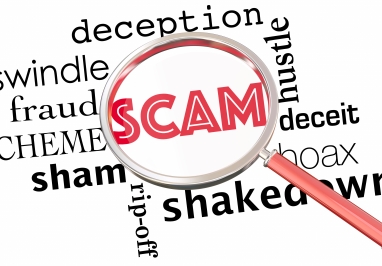Scams and More Scams

Scammers, fraudsters, crooks, and criminals. They have many different names, but they continue to come up with creative ways to get into people’s bank accounts and wreak havoc on their lives. Getting scammed is no fun. Once scammed, the time commitment and work involved in cleaning up the mess is overwhelming and frustrating to say the least. The best way to combat fraud is to avoid it altogether. It seems like in every newsletter we talk about fraud, but because it is so common, it needs to be brought up again to remind everyone what to look for if you think you are being scammed.
Here are four signs according to the Federal Trade Commission that you are getting scammed:
- Scammers pretend to be from an organization that you are familiar with. They will pretend to be from the IRS, FBI, Social Security Administration, utility company, or a charity to gain your trust and to get you talking to them.
- They say there is a problem or a prize. They will say you are in trouble for not paying your taxes or someone in your family had an emergency. A virus on the computer that needs fixed is also very popular. Other types of scams are that you have won the lottery, a sweepstakes, or prize money and will be paid out upon you sending them a small “handling fee”.
- They pressure you to act immediately. They will insist on you paying them immediately and they often threaten you with arrest, fines, taking away your business license, or that your computer is corrupted and all files will be lost.
- They want you to pay in a specific way. Often the payment they demand is nontraditional such as, gift cards, cryptocurrency, and payment apps.
Scams are not going away and continue to rise as fraudsters get more creative. If something doesn’t feel right on a phone call or email, hang up or close out of the email and please give your local customer Relationship Specialist a call. It is better to be proactive than reactive when it comes to scams!
-Taylor Mamot, Relationship Specialist-
